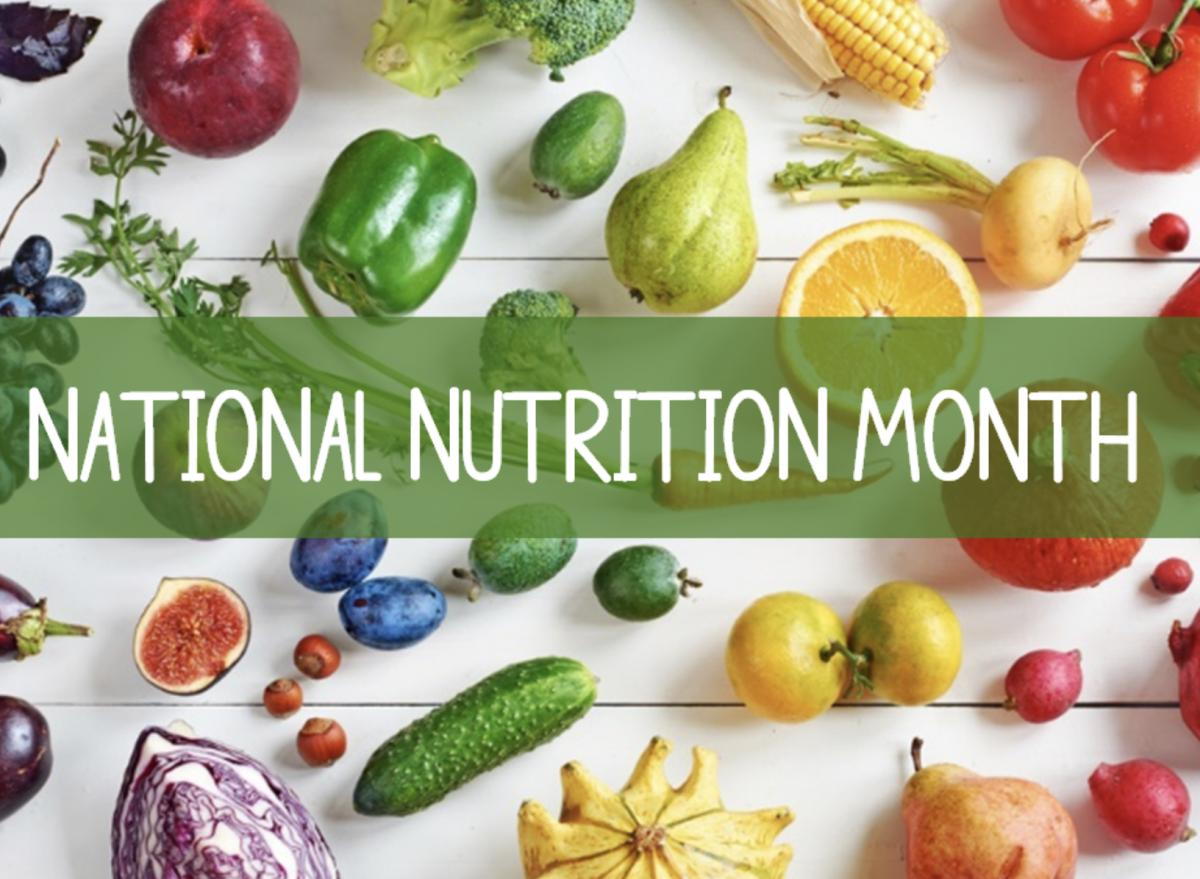
22 Tips for National Nutrition Month:
It’s easy to get confused when it comes to health and nutrition. Even qualified experts often seem to hold opposing opinions, which can make it difficult to figure out what you should actually be doing to optimize your health.
Yet, despite all the disagreements, a number of wellness tips are well supported by research.
Here are 22 health and nutrition tips:
1. Eat Breakfast- Start your morning off with a healthy breakfast that includes lean protein, whole grains, fruits and vegetables. Try making a breakfast burrito with eggs or yogurt with fruit.
2. Be Active- Regular physical activity has many health benefits. Start by doing what exercise you can. You don’t have to hit the gym – take a walk after dinner or play a game of catch or basketball.
3. Watch Portion Sizes- Get out a measuring cup and see how close your portions are to the recommended serving size. Use half your plate for fruits and veggies and the other half for lean protein and grains.
4. Make ½ your plate Fruits and Vegetables-Fruits and veggies add color, flavor and texture to any meal. Plus, the vitamins, dietary fiber and minerals to make your daily goals. Experiment with different types including fresh and froze.
5. Drink More Water-Quench your thirst with water and stay hydrated. If you are active and work or live in hot conditions you need to drink plenty of water.
6. Get Cooking- Preparing meals at home can be rewarding, healthy and cost effective.
7. Pack Your own Lunch- Whether its for work or school try some easy to make healthy lunch ideas – veggies with hummus, salad of mixed greens and a hardboiled egg
8. Fix Healthy Snacks- Healthy Snacks can sustain your energy levels between meals. Try raw veggies with cottage cheese or an apple with a tablespoon of peanut butter.
9. Follow Food Safety Guidelines-Reduce your chances of getting sick with proper food safety. Separate raw foods from ready to eat foods, regular hand washing and cooking foods to the appropriate internal temperature while refrigerating food promptly.
10. Get to know Food Labels- By reading the food labels can help you shop and eat smarter.
11. Dine out without Ditching your Goals- Planning ahead can help you eat and stick to your healthy eating goals. Ask questions and choose food carefully. Compare nutrition information and look for healthier options that are griller, bake broiled or steamed.
12. Enact Family Meal Time- Plan to eat as a family at least a few times a wekk. Set a regular meal time, turn off the TV phones and other electronic devices to encourage mealtime talk. Get kids involved in meal planning and cooking and use this time to teach them about good nutrition.
13. Slow down at Meal Time- Instead of eating on the go, try sitting down and focusing on the food you’re about to eat. Dedicate time to enjoy the taste and textures of foods which can have a positive effect on your food intake.
14. Reduce Added Sugars-Foods with added sugars can contribute to empty calories and add little to no nutrition. Review the ingredient list to identify sources of added sugars.
15. Supplement with Caution- Choose foods first for your nutrition needs.
16. Explore New Foods and Flavors- Add more nutrition and eating pleasure by expanding your range of food choices. When shopping, make a point of selecting a fruit or veggie that is new to you.
17. Experiment with Plant-Based Meals- Many recipes that use meat and poultry can be made without. Eating a variety of plant foods can help. Vegetables, beans, lentils are all great substitutes. Try including one meatless meal per week to start off.
18. Get Enough Sleep- The importance of getting enough quality sleep cannot be overstated. Poor sleep is one of the strongest individual risk factors for weight gain and obesity. People who do not get enough sleep tend to make food choices that are higher in fat, sugar, and calories, potentially leading to unwanted weight gain
19. Eat adequate protein-Eating enough protein is vital for optimal health, as it provides the raw materials your body needs to create new cells and tissues and is particularly important for maintenance of a moderate body weight. High protein intake may boost your metabolic rate, or calorie burn, while making you feel full. It may also reduce cravings and your desire to snack late at night
20. Meditate-Stress has a negative effect on your health. It can affect your blood sugar levels, food choices, susceptibility to sickness, weight, fat distribution, and more. For this reason, it’s important to find healthy ways to manage your stress.
21. Limit sugary drinks-Sugary drinks like sodas, fruit juices, and sweetened teas are the primary source of added sugar in the American diet. Sugar-sweetened beverages are also uniquely harmful for children, as they can contribute not only to obesity in children but also to conditions that usually do not develop until adulthood, like type 2 diabetes, high blood pressure, and non-alcoholic fatty liver disease. Healthier alternatives include: water, unsweetened teas, sparkling water and coffee.
22.Get Adjusted Regularly!
The bottom line: A few simple steps can go a long way toward improving your eating patterns and wellness.
Still, if you’re trying to live a healthier life, do not just focus on the foods you eat. Exercise, sleep, and social relationships are also important.
